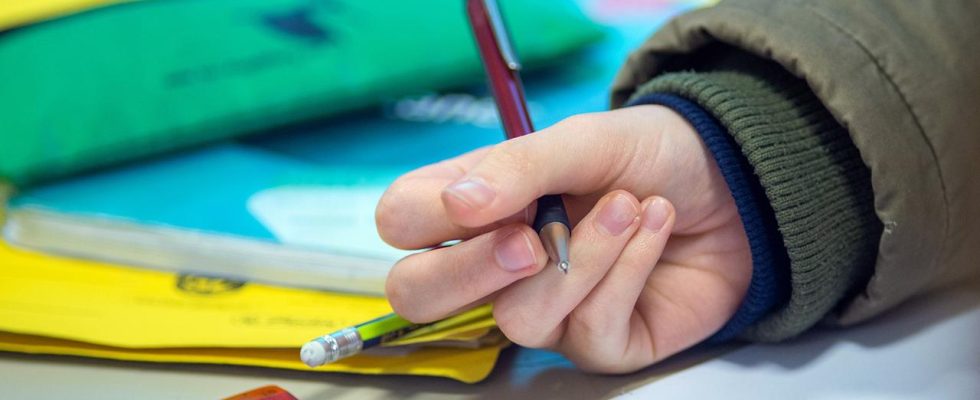In the debate about educational equality, the traffic light is enthusiastic about its starting opportunities program. In fact, disadvantaged children have rarely been given this much attention. Criticism comes from the opposition.
In parliament shortly after nine, the superlatives fly low, in the “prime time of the Bundestag,” as Ria Schröder, education policy spokeswoman for the FDP, says. We are sending a “signal of departure for the entire education policy,” she says.
SPD party leader Saskia Esken praises the StartChances program as “the largest educational program in the history of the Federal Republic.” And Kai Gehring from the Green Party sees the beginning of an “education turnaround”.
Again and again “Paradigm shift”
Why is the program being debated again in the Bundestag even though the federal and state governments have already decided on it? This is appropriate for the size and importance of the program, says a spokesman for the FDP-led Federal Ministry of Education.
For Oliver Kazcmarek from the SPD parliamentary group, the joint proposal from the traffic light factions also offers “the opportunity to give the Ministry of Education another order”. Kazcmarek sees the program as very positive, a “paradigm change in several respects.” “Paradigm shift” – another term that comes up often in the debate.
Intense negotiations
The starting opportunity program is larger and more long-term than anything before, that’s right. Around 4,000 schools in hotspot areas will be supported with a total of 20 billion euros for ten years. The federal government pays one billion a year, as do the states. This funding is scheduled to start in the 2024/25 school year. This required long and arduous negotiations, as those involved admitted.
Great pressure to act
“The pressure to act has never been as great as it is now,” said Federal Education Minister Stark-Watzinger in February 2024 after the negotiations had been concluded. Tens of thousands leave school in Germany every year without a qualification.
This is also a significant problem for the economy. And in the most recently published PISA study in December 2023, Germany achieved its worst result to date.
Three pillars
The starting opportunity program consists of three program pillars. Firstly, “modern and contemporary learning places” should be created; the money should not be spent on pure maintenance. The second pillar is a so-called “opportunity budget”, which schools should be able to use freely. This is intended to strengthen school autonomy.
The third pillar is a budget that can be used for multi-professional staff. Unions have been calling for these teams for a long time. The program should be evaluated during its lifespan.
Money distribution not according to the Königstein key
A paradigm shift also means that the money will not be distributed according to the Königstein key. This will be replaced by a distribution key that takes into account the at-risk-of-poverty rate, the migration background and the gross domestic product when awarding it.
The GEW union praises this as groundbreaking: Finally, some of the money can be used specifically where it is needed most: in poor urban districts and regions and for poor families.
Criticism from the opposition
The opposition parties sometimes criticize harshly. The CDU education politician Thomas Jarzombek calculates that each of the four thousand funded schools will get an additional position on average. And asks provocatively: “A job? What kind of educational revolution is this?”
Nicole Gohlke from the Left criticizes that the starting opportunities program does nothing to combat the shortage of teachers. And accuses the traffic light faction of saying that “every tank, every highway is more important than education.”
“Not a perfect educational world”
SPD party leader Esken at least admits that the starting opportunities program will not create a “perfect educational world”. Actually, many more schools need to be supported, says Esken. Nevertheless, the starting opportunities program is a “good and strong start”.
Balthasar Hümbs, ARD Berlin, tagesschau, April 11, 2024 3:04 p.m

